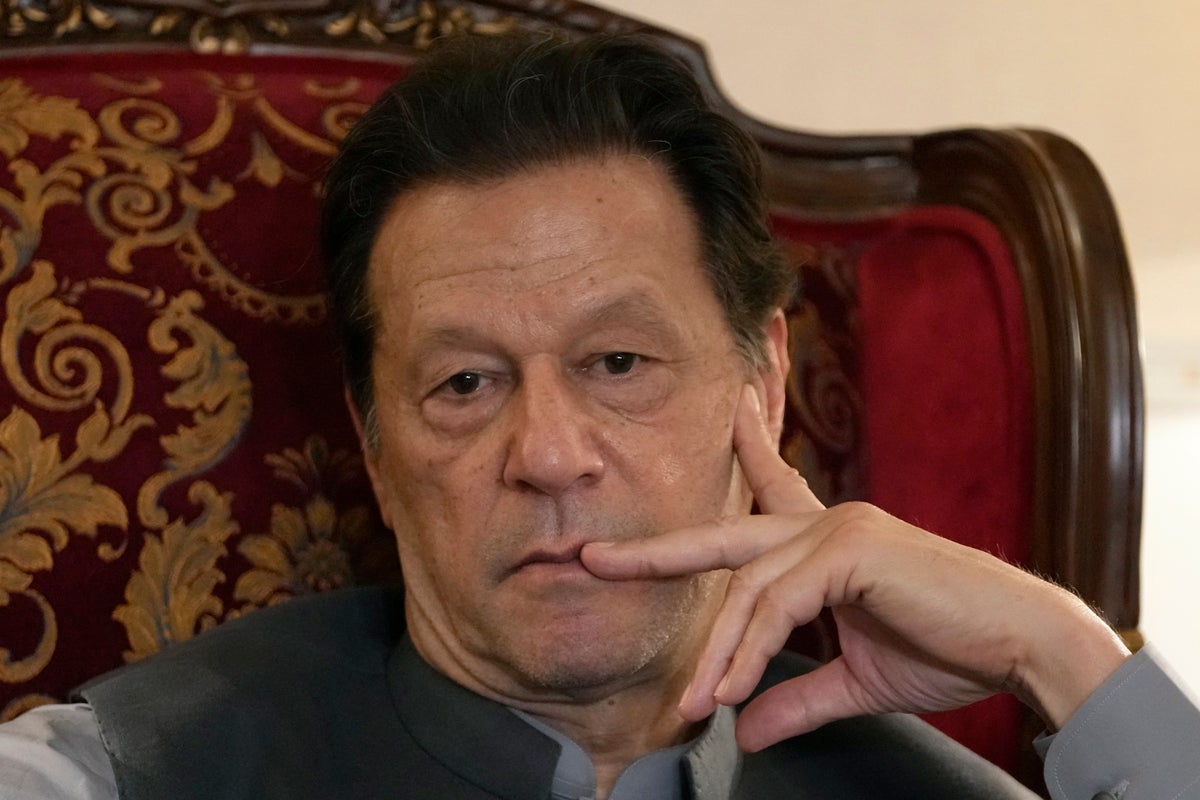
A Pakistani court on Monday indicted Imran Khan on charges of revealing official secrets after his 2022 ouster from office in another dramatic move against the former prime minister who could now face a possible death sentence and will likely be unable to run in parliamentary elections in January.
Khan and Shah Mahmood Qureshi, a close aide and the deputy leader of Khan's opposition Pakistan Tehreek-e-Insaf party, will go on trial this week at a high-security prison in the garrison city of Rawalpindi.
The charge of revealing state secrets carries a sentence ranging from life in prison to the death penalty, according to Umair Niazi, one of Khan's defense lawyers. Niazi, however, said he was confident Khan and Qureshi would be acquitted as they had done “nothing wrong.”
The trial starts on Friday and both Khan and Qureshi have denied the charges against them. The hearings will take place before a special court behind closed doors at the Adiyala Prison, where Khan is being held. Khan's lawyers have also objected to the closed-door trial.
The case is related to Khan's speech and waiving of a confidential diplomatic letter at a rally after his ouster in a no-confidence vote in parliament in 2022. The document — dubbed Cipher — has not been made public by either the government or Khan’s lawyers but was apparently diplomatic correspondence between the Pakistani ambassador to Washington and the Ministry of Foreign Affairs in Islamabad.
At the time, Khan held up the alleged letter, claiming it was proof that he was being threatened and that his ouster was a U.S. conspiracy allegedly executed by the military and the government in Pakistan. Washington and Pakistani officials have denied the claim.
Another defense lawyer for Khan, Naeem Panjutha claimed on Monday that the former premier and Qureshi were “indicted in a hurry” with the intention of quickly convicting the popular opposition leader.
Khan is facing more than 150 cases, including charges ranging from contempt of court to terrorism and inciting violence, and was given a three-year sentence on corruption charges in early August. Subsequently, an Islamabad High Court suspended that sentence in what amounted to a legal victory for Khan.
The victory was short-lived, however, as he was promptly re-arrested later in August in the Cipher case.
For the moment, Khan is not be eligible to run for office in the January elections on two counts. First, he would have to be cleared of corruption charges in the graft case and second, the Cipher case charges would have to be dropped or he would have to be cleared of those as well.
Panjutha, Khan's lawyer, said in a video statement to reporters on Monday that his client is being denied a fair trial.
Over the weekend, Khan's main political rival and former Prime Minister Nawaz Sharif returned home to Pakistan, ending his four years of self-imposed exile in London. Sharif on Saturday addressed a mammoth homecoming rally in the eastern city of Lahore, declaring that he forgives all those who caused him hardship.
Sharif and his Pakistan Muslim League party are expected to face tough competition in the January vote from Khan's party, which is hugely popular among the masses.
Sharif has been a fugitive since he failed to appear before a Pakistani court in 2019 — during Khan's term in office — following his conviction and a 10-year sentence on corruption charges.
However, a federal court recently granted him protection from arrest, which may have prompted his return to Pakistan. He still has to appear before the Islamabad High Court on Tuesday.







